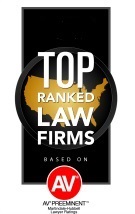Counsel can fight back against libelous, defamatory comments made online
By Doug Sherwin of the San Diego Daily Transcript | Published: September 17, 2013
Employees and former employees have been venting about management ever since the first time clock was punched.
And now, with the increasing popularity of social media and Internet message boards, their voices can be heard almost anywhere, instantaneously.
The result is that a company’s reputation can get trashed pretty quickly, whether the criticism is fair or not.
But corporate counsel can fight back as proven by the attorneys at Kirby Noonan Lance & Hoge.
The firm recently represented a publicly traded biopharmaceutical company and won damages against an individual for comments in a public chat room that accused a director of insider stock trading. The accuser even went so far as to post an item that suggested the person had been caught.
“It went way beyond anything that was his opinion and was actually misleading readers to suggest that the insider trading had occurred when it did not,” said Charles Hoge, managing partner of Kirby Noonan and a business litigator. “You never know if someone is trying to manipulate the stock by starting a rumor. They then short sell the stock and make somemoney.”
He said law firms and in-house counsel can use laws prohibiting trade libel and the issuance of false and defamatory statements.
When companies see their stocks may be at risk because of what’s being written online, they have obligation to try to stop the false information from being spread, Hoge said.
Most of the time, companies won’t seek monetary damages, butwill try to get the offending user to stop posting the defamatory statements online.
Hoge said this can be accomplished by sending cease-and-desist letters, although it gets a little trickier if the user is anonymous.
Attorneys can ask the host website or Internet Service Provider (ISP) for the name of the unidentified user or file a complaint against “Doe” defendants to allow discovery to start.
Some sites want to protect their reputation for not revealing the identities of their users, and these sites are generally protected fromliability of their users, unless they know false statements are being made.
While ISPs aren’t legally obligated to police their own sites, they typically have terms and conditions that prohibit users from making inappropriate or false statements.
“They all have rules about what you can and cannot say when you post,” Hoge said. “You hope they want to keep the credibility of their chatroom in tact and withhold privileges (from offending users). The objective is to get people to straighten up their act.”
Hoge said in another situation, the firm went after a user who was posting homophobic statements about an officer of a company. They got the host site to terminate the person’s online privileges.
“They were not jeopardizing the company. It was just the right thing to do,” Hoge said.
Some former employees try to get back at their old company by writing a bad — and false — review on the consumer review site Yelp.
Companies can pursue a legal action in these cases, but thatisn’t necessarily the wisest decision, according to Bill Whelan, a labor and employment attorney with Solomon Ward Seidenwurm & Smith.
“It can blow back if it looks like the employer is being a bully,” he said. “If someone is perceived as just wanting to expose the truth, then the company can lose the PR battle if it looks like they’retrying to silence a whistleblower or cover up the truth.”
Whelan also said expensive court costs also might not make it worth it.
He said it might be better for a business to proactively put out positive publicity to the media, shareholders or online. A company also canencourage satisfied customers to write a review on Yelp Inc. (NYSE: YELP).
“There’s a more effective way of handling the problem than trying to chase down the identity of someone who made false statements,” Whelan said.
Bad reviews and false statements online can hurt smaller businesses or new stores most. Industries that are more consumer-driven have to pay more attention to online chatter, as well.
“It truly is a case-by-case basis,” Whelan said. “Everybody needs to (be aware of their) online reputation, but don’t spend a lot of time worrying about or monitoring what someone says online unless it becomes a problem.”
Kirby Noonan’s Hoge said companies have to be careful that they don’t appear to be picking on people or be seen as trying to hinder free speech.
California has a powerful tool for defendants charged with defamation — the anti-SLAPP (strategic lawsuit against public participation) statute. It’s designed to prevent lawsuits intended to hinder free speech.
The statute is meant to protect people who are speaking at apublic meeting or in a public setting from getting sued. Recently, it has become used anytime someone is sued for defamation outside of a commercial setting.
“The way to defeat it is if you can demonstrate you have a reasonable case of winning on the merits, then the judge will allow (the lawsuit) to proceed,” Hoge said. “It’s a pretty challenging burden. It has to be more than negligible. You have to (show there was) intent to harm somebody’s reputation.”
http://www.sddt.com/news/article.cfm?SourceCode=20130918cra#.Ujn4aGRgaAY


